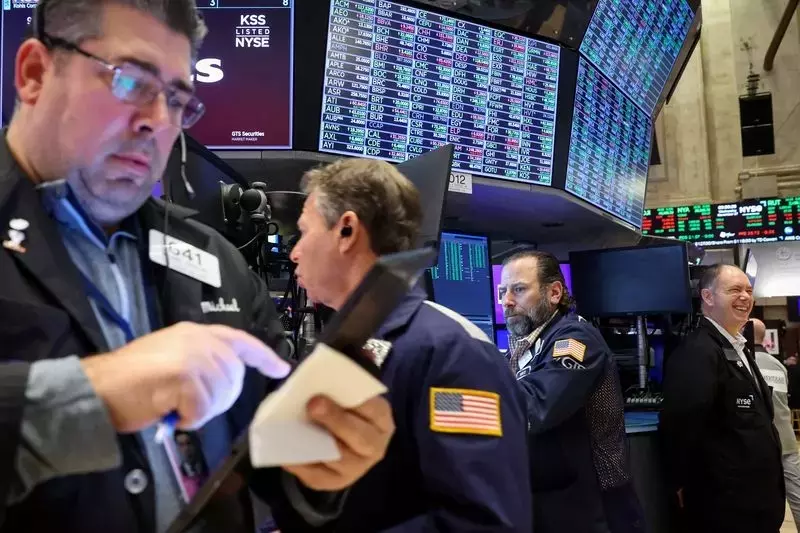(Reuters) - On Monday, Wall Street's main indexes faced a downward trend. The decline in AI powerhouse Nvidia had a significant impact on tech stocks, causing unease among investors. China's market regulator's investigation into Nvidia over suspected antitrust law violations led the information technology sector to drop by 0.4%. Chipmaker Nvidia itself lost 3.1%, and its peer Advanced Micro Devices also fell 4.2% as BofA Global Research downgraded its stock rating. A gauge of semiconductor stocks declined by 0.7%.
Impact on the Market and Investor Sentiment
"Names like Nvidia are coming under pressure due to China's retaliatory actions, which is putting some stress on the tech space," said Robert Pavlik, senior portfolio manager at Dakota Wealth. "People are currently trying to figure out their strategies between now and the end of the year. Those who are positioning may be considering taking some profit before moving into the next year."At 11:26 a.m. ET, the Dow Jones Industrial Average fell 94.95 points, or 0.22%, to 44,547.57. The S&P 500 lost 27.02 points, or 0.44%, to 6,063.25, and the Nasdaq Composite lost 96.30 points, or 0.48%, to 19,763.66.Comcast lost 7.6% after forecasting broadband subscriber losses of a little over 100,000 for the fourth quarter, pulling down the communication services sector by 1.1%. Hershey, on the other hand, jumped 12% to lead gainers on the S&P 500 after a report said Cadbury-parent Mondelez was exploring an acquisition of the chocolate maker. Mondelez shares were off 2.4%.On the data front, the consumer prices index (CPI) data due on Wednesday is one of the last major datasets before the Federal Reserve's Dec. 17-18 meeting and could influence the central bank's monetary policy path.After data on Friday showed a rise in the unemployment rate to 4.2% in November, pointing to an easing labor market, bets of a 25-basis-point rate cut at the upcoming meeting increased to more than 85%. A host of Fed officials, including Chair Jerome Powell, last week urged more caution regarding the central bank's monetary policy easing path considering the economy's resilience.Wall Street's main indexes started December on a generally positive note, with the benchmark S&P 500 and the tech-heavy Nasdaq recording gains in their first week, while the blue-chip Dow ended the week slightly lower.U.S. equities surged in November as Donald Trump's victory in the presidential election and his party sweeping both houses of Congress raised expectations of a more favorable policy stance towards companies.Among notable movers on Monday, Workday added 6.3% on its planned inclusion into the S&P 500 index. Interpublic Group advanced 7.2% after a report said marketing conglomerate Omnicom was in advanced talks to acquire the advertising company. Omnicom shares were down 8.7%.Advancing issues outnumbered decliners by a 1.12-to-1 ratio on the NYSE and by a 1.15-to-1 ratio on the Nasdaq. The S&P 500 posted 18 new 52-week highs and 2 new lows while the Nasdaq Composite recorded 97 new highs and 34 new lows.(Reporting by Purvi Agarwal and Shashwat Chauhan in Bengaluru; Editing by Maju Samuel and Devika Syamnath)You May Like

